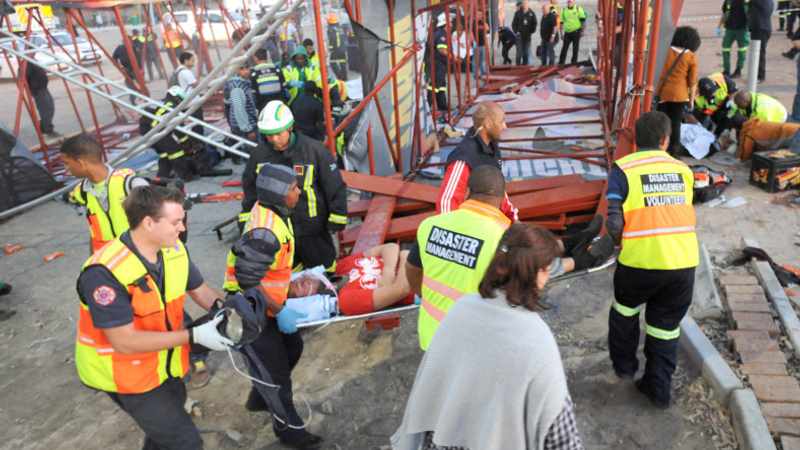
IT IS YET to be determined exactly who should be held accountable for the death of a woman at a Linkin Park concert at Cape Town Stadium nearly nine years ago.
Florentina Popa, 32, died when an advertising board fell on her head at the concert in November 2012.
A magistrate earlier held an inquest into the death and concluded that it could have been caused by the negligence of media and advertising company Hirt & Carter.
This was, however, only a preliminary finding, and the prosecuting authority still has to decide whether someone should be criminally prosecuted following the inquest findings.
Hirt & Carter, meanwhile, took the matter on review to the high court, which also ruled against the company.
The company approached the Supreme Court of Appeal, which on Friday also ruled against it.
Five judges said that they could not fault the rulings that there was a prima facie case against the advertising group that Popa’s death could have been caused by its negligence.
It is, however, up to the prosecution authority whether to take the matter further.
Popa died instantly when the collapsed structure fell on her, causing an open blunt force trauma to her head. Several other concert-goers were also injured as a result.
Big Concerts International organised the Linkin Park concert in Joburg and Cape Town. Alliance Safety CC t/a Alliance Safety Management was responsible for the safety at the concerts. GlaxoSmithKline provided sponsorship.
Hirt & Carter, specialising in designing media and advertising campaigns, was approached by GlaxoSmithKline, who owned the Lucozade energy drinks brand, to assist with a campaign to advertise at the two concerts.
Hirt & Carter proposed large Lucozade branding on appropriate material wrapped around two towers to be constructed.
The company had no experience pertaining to structures to which the branding could be attached and approached a third party, Bothma Signs, to erect the structures.
Hirt & Carter knew that Bothma Signs was not a scaffolding expert and that this element would be outsourced to a third party.
Bothma Signs in turn approached Vertex, a supplier of scaffolding solutions to erect two scaffolding towers for the Cape Town Stadium.
On the day of the concert, the notorious Cape winds began to blow and by 7pm their strength increased to such an extent that it blew over the scaffolding structures to which the Lucozade banner was attached.
The court was told that Big Concerts had made it clear that safety was of the essence.
An official of Hirt & Carter who was involved in the project testified that he knew that Bothma Signs were not experts in scaffolding, but he accepted that the third party that Bothma Signs contracted with, Vertex, were experts in the field.
Judge Sulet Potterill, who wrote the Supreme Court judgment, said it was common cause that there had been no structural engineer sign-off and that the towers had not been properly secured, causing them to dislodge and fall on concert-goers.
She could not find fault with the high court’s earlier finding that Hirt & Carter, having accepted liability for a safety compliance certificate , “was duty bound to ensure that the safety certificate complied with the requisite safety standards”.
In turning down the appeal, she said neither the magistrate of the high court could be faulted for concluding that the death of the deceased was brought about by an act or omission that prima facie amounts to an offence on the part of Hirt & Carter.
Pretoria News
Credit IOL